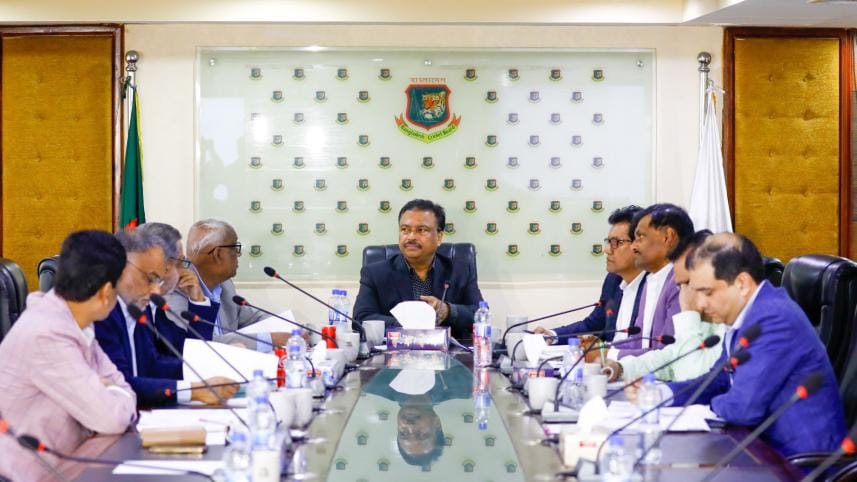BCB’s new era, same old rot

When Faruque Ahmed assumed the presidency of the Bangladesh Cricket Board (BCB) on August 21 last year, he pledged to "take the country's cricket forward". Yet, eight months into his leadership, a more pressing question has emerged: can he even manage the board's day-to-day affairs — let alone implement the long-term vision he promised?
The situation, both on and off the field, is disheartening. The national team's struggles, coupled with ongoing match-fixing allegations and administrative chaos in the domestic arena, mirror the dysfunction of the previous regime Faruque promised to reform.
Hridoy saga exposes cracks
At the outset, Faruque promised to "rebuild the system", but that vision now feels distant. The suspension saga involving Towhid Hridoy illustrates this collapse.
Initially banned for two matches due to misconduct during the Dhaka Premier League (DPL), Hridoy's punishment was reduced to one match "through a memo", a decision BCB director Nazmul Abedeen Fahim admitted was "outside process".
The officials later reverted to the original punishment, but contradictory explanations from BCB president Faruque that the DPL technical committee nullified the umpires' decision, only fueled further confusion.
Protests and further embarrassment
In an astonishing reversal, Hridoy's second-match ban was deferred to the following season after players, led by Tamim Iqbal, rallied to the BCB premises in protest on Wednesday.
While player protests are usually rooted in financial grievances, this unprecedented incident stemmed from administrative mismanagement. Though the players' methods can be criticised, the greater failure lay with the board's inability to enforce discipline — in stark contrast to how domestic indiscipline is handled firmly in more established cricket-playing nations.
This farcical chain of decisions exposed the BCB's alarming lack of professionalism, with each mistake deepening the chaos as officials scrambled to cover earlier errors.
Former captain Tamim described the Hridoy episode as "funny", but for serious cricket followers, it was disgraceful — both in the players' conduct and the board's handling. "What finally happened was extreme injustice," said umpires' committee chairman Iftekhar Ahmed Mithu.
Politics over principles
With board elections looming, political considerations — not principle — might dictate BCB decisions. This scandal has laid bare the board's indecisiveness, lack of transparency, and vulnerability to pressure — the very flaws Faruque Ahmed had vowed to eliminate.
Having fiercely criticised Nazmul Hassan Papon's centralised, opaque style, Faruque's administration was meant to usher in accountability. Instead, it has merely replicated the same dysfunction.
Talk of long-term planning and financial stability has evaporated. Today's board is defined by unclear decision-making, fragile egos, and persistent favouritism — precisely what Faruque had promised to cleanse.
Corruption, meanwhile, persists in domestic competitions, with DPL match-fixing investigations -- involving Gulshan Cricket Club and Shinepukur Cricket Club -- making little progress. Payment disputes in the Bangladesh Premier League continue, and the failure to secure broadcast rights for the Bangladesh–Zimbabwe Test series highlights the board's strategic and financial weaknesses.
What began as a hopeful call for reform has decayed into familiar dysfunction. Faruque's tenure now mirrors the era he once condemned — marred by broken promises, malpractice, and amateurish leadership.
The bitter irony is clear: Faruque Ahmed and Nazmul Abedeen Fahim, once vocal critics of the Papon regime's excesses, are now presiding over an even more dysfunctional system.
Unless Faruque urgently shifts from rhetoric to real reform, his presidency will be remembered not for heralding change, but for squandering a pivotal opportunity for Bangladesh cricket.
The clock is ticking.



 For all latest news, follow The Daily Star's Google News channel.
For all latest news, follow The Daily Star's Google News channel.
Comments